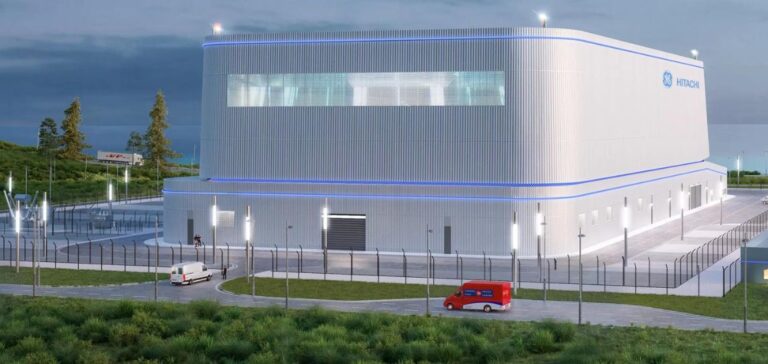A working group of 18 European companies, led by Orlen Synthos Green Energy (OSGE), is focusing on the implementation of GE Hitachi Nuclear Energy’s BWRX-300 reactors in Europe.
This initiative is part of the European Industrial Alliance for Small Modular Reactors (SMR), which aims to standardize and accelerate the development of this innovative nuclear technology.
The members of this working group, from 10 EU member states and Norway, bring a wide range of expertise covering reactor development, design and engineering.
The aim is to coordinate efforts to build BWRX-300 reactors across different European countries, harmonizing technology licensing processes and maximizing the involvement of local suppliers.
Objectives and strategies
One of the main objectives is to create a robust supply chain within the EU to support the production of nuclear fuel and the necessary components.
The working group also aims to develop local skills, prepare personnel and establish an appropriate support system for this type of investment.
Last November, the European Commissioner for Energy, Kadri Simson, announced the formation of the SMR Industrial Alliance, which became official in February of this year.
This alliance aims to facilitate and accelerate the development, demonstration and deployment of SMRs in Europe, with a target implementation date of the early 2030s.
Progress in Poland
OSGE plans to deploy a fleet of BWRX-300 reactors in Poland.
In 2023, the company received a positive opinion from the National Atomic Energy Agency on the technical aspects of this technology.
The decisions of the Ministry of Climate and Environment concerning six sites in Poland mark an important milestone in the pre-licensing process.
In February 2024, the Director General for Environmental Protection defined the scope of the environmental report for the construction of an SMR at Stawy Monowskie, in the province of Małopolska.
This is the first decision of its kind in the European Union, paving the way for a series of similar developments.
Technology and Collaboration
The BWRX-300 is a 300 MWe SMR reactor using natural water circulation and passive safety systems.
It is based on the ESBWR design certified by the US Nuclear Regulatory Commission, and uses the GNF2 fuel design.
This unique combination makes it possible to offer an innovative, carbon-free baseload energy source.
The companies in the working group bring a wide range of expertise to the table, reinforcing the international collaboration required for the success of this initiative.
OSGE Chairman Rafał Kasprów emphasizes that this technology offers significant opportunities for European companies, particularly in terms of the production of key components within the EU.
Sean Sexstone, Executive Vice President of Advanced Nuclear Technologies at GEH, says that international collaboration is crucial to the implementation of new nuclear technologies.
The experience and knowledge of the working group members will help accelerate the development of SMR technology in Europe and worldwide.
The formation of this working group demonstrates the strong commitment of European companies to BWRX-300 technology, and their willingness to participate actively in the EU’s energy transition.
This project promises to provide a reliable, sustainable and carbon-free source of energy, making a significant contribution to the European Union’s energy and climate objectives.






















